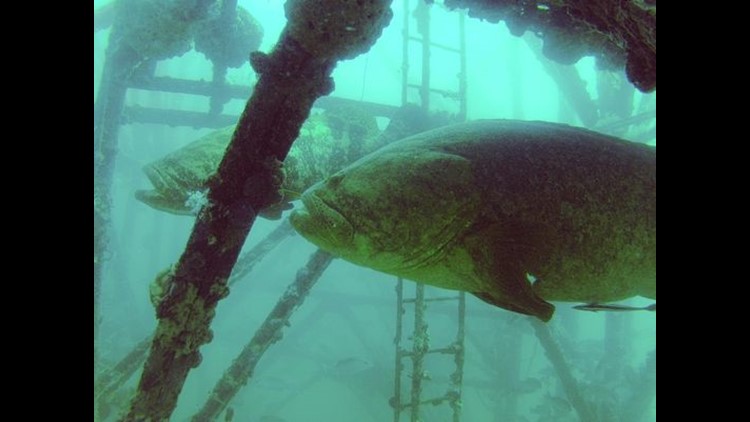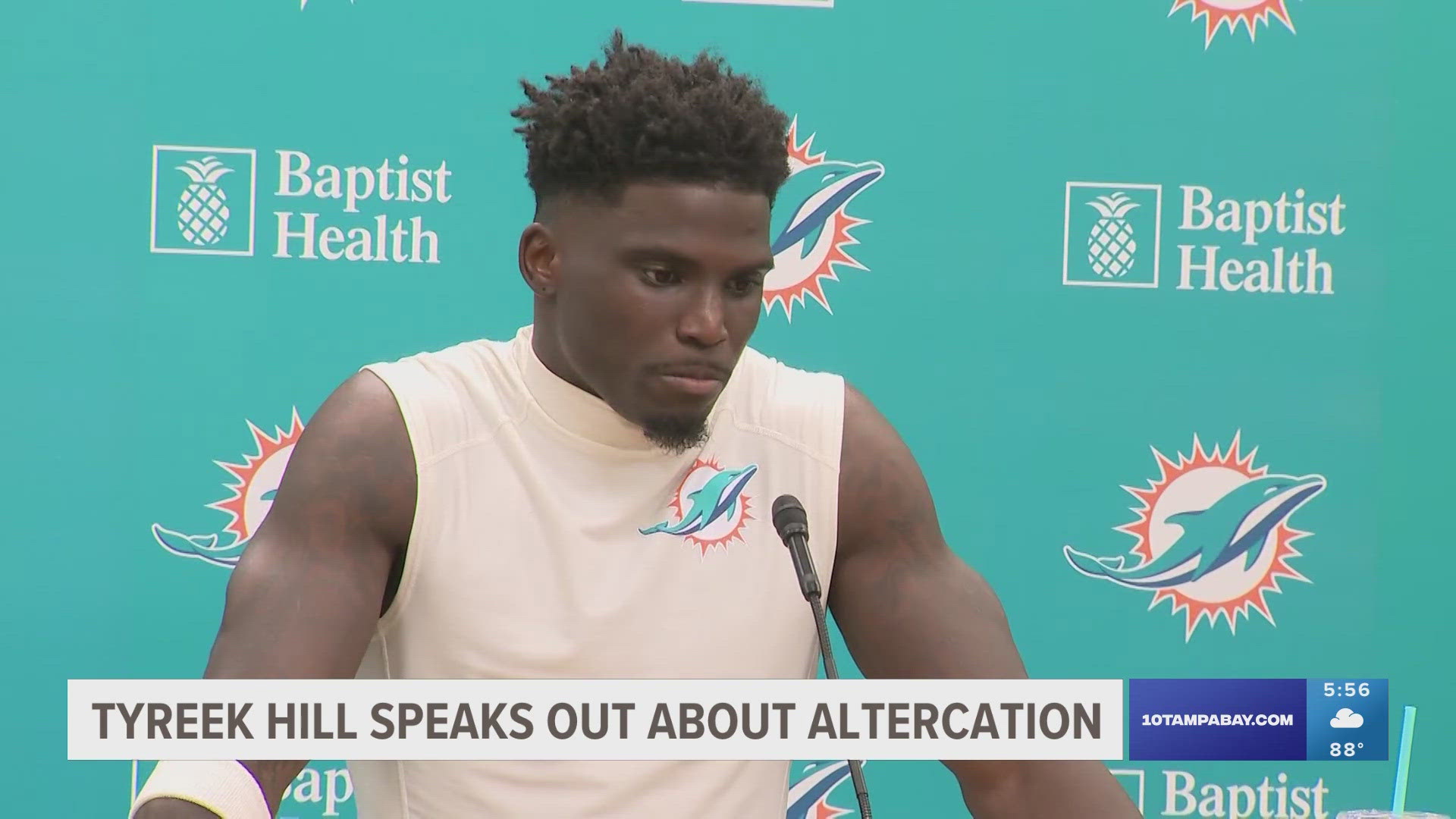![grouper [ID=15270393]](http://moc-assets-prod.gannett-cdn.com/-mm-/3d5569507733ca056af5edaf0a2a8036c559fb13/r=500x375/local/-/media/WTSP/WTSP/2014/09/08/1410162992000-grouper.jpg)
(News-Press) - Goliath grouper, lionfish eggs, shark chum and gun silencers are among the topics top state wildlife regulators will ponder this week.
The Florida Fish and Wildlife Conservation Commission meets Wednesday and Thursday in Kissimmee.
Melbourne Beach Mayor Jim Simmons plans to speak up Thursday to nudge FWC to ban shark chumming from shore and create other rules to make people safer from the ocean's top predator.
"Shark fishermen's rights shouldn't trump the rights of swimmers and surfers," Simmons said.
Melbourne Beach officials say "bloodbaiting" is dangerous, potentially putting sharks into feeding frenzies near swimmers. But local governments don't have the authority to stop chumming. FWC regulates saltwater fishing and chumming.
At Thursday's meeting, another fish is sure to create a big stir.
Goliath grouper grow up to 800 pounds and can wolf down mid-sized sharks in one gulp.
A recent Youtube video with 37 million views shows a Goliath grouper swallow whole a four-foot-long blacktip shark as a fisherman reeled the shark in offshore of Bonita Springs.
Divers and fisherman say they've seen enough. They describe seeing so many of these gargantuan groupers along Florida's reefs and shipwrecks that it's high time to remove a long-running ban on harvesting the fish. The Goliaths are sucking up spiny lobsters, reef fish and other marine life, they say, tipping the food web's balance.
Commissioners will discuss the Goliath's status and hear results from a University of Florida study of what fishermen and others think about the fish.
"The culmination of it all was that most of the people were supporting of continuing the closure, but felt like there could be some limited take for research purposes," Amanda Nalley, an FWC spokeswoman said of the study.
The Goliath won't be open up to fishing until a new study of the fish's numbers is complete in the fall of next year.
"Right now, we're not presenting any management measures from them to decide upon," Nalley said.
GALLERY: SHARKS!
![Shark Pictures![ID=6427249] ID=6427249](http://www.gannett-cdn.com/-mm-/8e4cb889dea3d308b6bc557e50f2ee5be7e73705/c=225-0-1823-1364/local/-/media/WTSP/WTSP/2014/03/14//1394827166004-51498211-10.jpg)
Before 1983, there were no state or federal regulations on commercial or recreational harvest of the fish. That year, the South Atlantic Fishery Management Council banned spearing of Goliath grouper.
Then in 1990, harvest of the fish was banned in state and federal waters.
Although the fish's status remains unknown, different surveys show substantial recovery since the fishery was closed, a staff report to FWC commissioners says. "However, the extent to which the population has recovered is unclear," the report says.
The last stock assessment in 2010 found that the 1990 harvest ban cut fishing pressure by about 83 percent and that the stock might be recovered, according to the staff report. But the report also cites a long-term lack of landings data, rendering the assessment inconclusive and the stock status mostly unknown.
Ron Rincones, a fisherman and diver from Grant-Valkaria, knows the grouper reigns supreme along local reefs and shipwrecks, hogging all the spiny lobsters for themselves.
"If I'm diving the big ledges, you see 400- or 500- pounders," Rincones said. "Every wreck now is loaded with them," he added. "There's probably more now than there were in the late 40s and early 50s."
A much smaller fish on the agenda — though similarly as fearsome to the food web — is the invasive lionfish.
They aggressively gobble up other prized sport and commercial fish and have grown to dominate many offshore reefs. Even the Goliath doesn't seem to be making a dent.
So on Thursday, FWC will consider a proposed rule to ban breeding lionfish in captivity or possessing their eggs and larvae for any purpose other than destruction or research.
The state agency recently adopted a ban on importing lionfish and other rules to help remove the fish from Florida waters.
Hunters won't likely stay silent on this agenda item.
On Wednesday, FWC will consider a draft rule to remove Florida's restriction on the use of silencers for hunting wildlife classified as game.
Silencers on guns, also called suppressors, go on the gun's barrel to dampen sound.
Hunters asked FWC to look into the issue, and the agency determined restrictions on using silencers for hunting were no longer necessary.
Thirty-two states already allow silencers for all hunting.
Florida Fish and Wildife Conservation Commission meeting
• Time: 8:30 a.m.
• Dates: Wednesday, Thursday
• Place: Embassy Suites Orlando — Lake Buena Vista South, 4955 Kyngs Heath Road, Kissimmee



